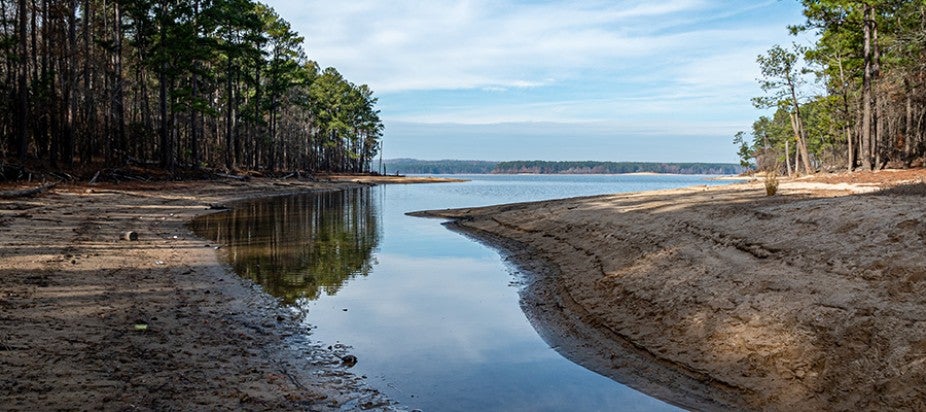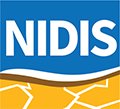Drought and Aquatic Ecosystems in the Southeast Workshop
Informing drought response and ecological resilience to future low-flow events

8:45 am – 5:45 pm MST
Update December 30: Due to the closing of Executive Departments and Agencies of the Federal Government on Thursday, January 9th, this workshop will now take place, Tuesday, January 7th and Wednesday January 8th, and the last day of the workshop, January 9th will be cancelled. Registered participants will be contacted directly with additional information.
Workshop Venue
The North Carolina State University Plant Sciences Building
840 Oval Drive
Raleigh, NC
Workshop Deadlines
Abstract Submission for Poster and Tool & Resource Fair: extended to Friday, December 13, 2024.
Travel Support Request: Friday, November 1 (Notification by Friday, November 8)
Hotel Discount Block: Friday, December 6, 2024
Workshop Objective
Given the broad interest and need to better understand and plan for ecological drought in the Southeast, the USGS Southeast Climate Adaptation Science Center (SECASC) and NOAA’s National Integrated Drought Information System (NIDIS) in support of the Southeast Drought Early Warning System (SE DEWS), will convene a 3-day workshop addressing drought and low-flow in the Southeast.
-
Theme 1 will focus on understanding drought/low-flow ecosystem impacts and water resource management in the context of the Southeast.
-
Theme 2 will focus on ecological drought monitoring and response in the near-term.
-
Theme 3 will focus on incorporating drought/low-flow in long-term resilience and adaptation planning.
This workshop will provide an opportunity to share available science, resources and best practices; jointly identify key management priorities and research questions; and expand the region’s ability to respond and prepare for future droughts.
Who Should Attend
The intended audience for this workshop are federal, Tribal, regional and state natural resource managers, water resource managers, drought planners, regional boundary organizations (water and climate), scientists, and data providers. The geographic scope will be Alabama, Arkansas, Georgia, Florida, Mississippi, North Carolina, South Carolina, Tennessee, and Virginia.
Why are We Holding this Workshop?
The Southeast region has experienced several periods of exceptional drought in the 21st century and is a hot spot for frequent drought events that can rapidly intensify. Competing water demands stress supply even in this humid region. Historically, drought has been viewed in terms of its agricultural, hydrological, and socioeconomic impacts. How drought affects ecosystems - and the services they provide human communities - has only recently been acknowledged as an important area of research. The USGS Southeast Climate Adaptation Science Center (SECASC) held an ecological drought workshop in 2016 to better understand management challenges in a regional context (summary here). In the seven years since this regional discussion, there has been a significant amount of hydroclimatic change research but a lack of focus on ecosystem impacts especially in the Southeast. Understanding the impacts of low-flow and drought on natural systems to inform future research needs, management practices, and adaptation planning has been identified as a critical need. The time is ripe to weave together and articulate what we have learned so far from the science community, identify if there are some commonalities across different parts of the region, and produce a scientific baseline - driven by management and planning needs - to inform future research investments.
Steering Committee
(Organizer) Meredith Muth, National Oceanic and Atmospheric Administration (NOAA) National Integrated Drought Information System (NIDIS)
(Organizer) Catherine (Kasia) A. Nikiel, Oak Ridge Institute for Science and Education (ORISE) Research Participation Program/U.S. Geological Survey (USGS) Southeast Climate Adaptation Science Center (SE CASC)
Klaus Albertin, North Carolina Department of Water Quality, Division of Water Resources (NCDEQ/DWR)
Luke Bower, USGS South Carolina Cooperative Fish and Wildlife Research Unit/Clemson University
Ryan Boyles, USGS
Gregory Carbone, University of South Carolina
Jennifer Cartwright, USGS SE CASC
Rachel DuBose, USGS Lower Mississippi Gulf Water Science Center
Corey Dunn, USGS North Carolina Cooperative Fish and Wildlife Research Unit/North Carolina State University (NCSU)
Lee Ellenburg, Alabama State Climatology Office/University of Alabama Huntsville
Ben Emanuel, American Rivers
Vic Engel, USGS South Atlantic Water Science Center
Todd Ewing, Southeast Aquatic Resources Partnership
Will Farmer, USGS
Trent Ferguson, U.S. Army Corps of Engineers (USACE) South Atlantic Division
Chris Fuhrmann, NOAA Southeast Regional Climate Center
Cari Furiness, SE CASC
Michael Gavazzi, U.S. Department of Agriculture (USDA) Southeast Climate Hub
Stephen Golladay, Georgia Water Planning and Policy Center
Todd Hamill, NOAA Southeast River Forecast Center
Michelle Jewell, SE CASC
Rachel McGuire, The Jones Center at Ichauway
Michael J. Osland, USGS Wetland and Aquatic Research Center
Matthew Parrish, USACE South Atlantic Division
Mitzi Reed, Native American Fish and Wildlife Society
Katherine Smith, USGS SE CASC
Beth Stys, U.S. Fish and Wildlife Service Science Applications
Ge Sun, U.S. Forest Service Southern Research Station/NCSU
Elliot Wickham, South Carolina Department of Natural Resources
Conveners
The NOAA/NIDIS-led Southeast Drought Early Warning System (SE DEWS) and the Southeast Climate Adaptation Science Center (SE CASC) are two regional entities that have built cross-state partnerships and relationships with stakeholders that allow them to bring together key knowledge producers and users.
The Southeast Drought Early Warning System (DEWS) is a collaborative federal, regional, state, and local interagency effort to improve drought early warning capacity and build long-term drought resilience throughout the region. Launched in 2020, this regional network includes Tennessee, Virginia, North Carolina, South Carolina, Georgia, Florida and Alabama. This is one of eight regional DEWS networks across the nation and is coordinated by the National Integrated Drought Information System (NIDIS) at the National Oceanic and Atmospheric Administration (NOAA). The 2022-2025 Southeast DEWS Strategic Action Plan is here.
The Southeast Climate Adaptation Science Center (SE CASC) is part of a network of nine Climate Adaptation Science Centers managed by the U.S. Geological Survey National Climate Adaptation Science Center. Our mission is to deliver science to help fish, wildlife, water, land, and people adapt to a changing climate. The current SECASC footprint covers Tennessee, North Carolina, South Carolina, Georgia, Florida and Alabama, Mississippi, Arkansas, Puerto Rico and the U.S. Virgin Islands. The National and nine regional CASCs are federal-university partnerships made up of a consortium of institutions, including university, Tribal, and non-profit institutions. See the Summary of the 2016 Southeast Workshop and the National CASC Synthesis document.
Workshop Contacts
Please send any questions to Meredith Muth and Kasia Nikiel.




